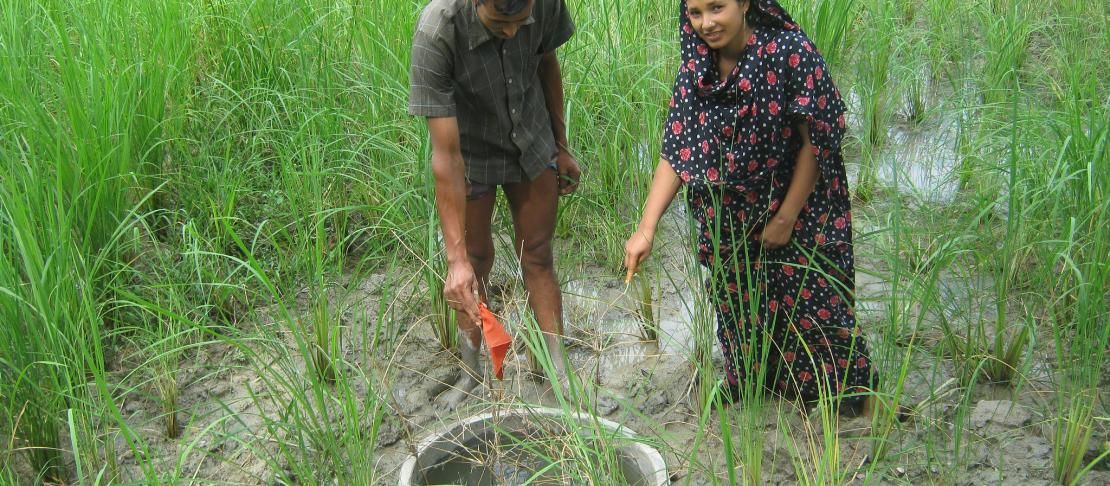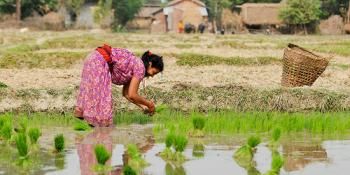Keeping fish in rice fields could help farmers adapt to a changing climate

by Melody Braun
Fish and fisheries play an important role in food security in Bangladesh, as fish represents 58 percent of all animal protein consumption, as well as a good source of vitamins and nutrients. However, natural fish populations depend on favorable environmental conditions that allow them to complete their natural life cycle. Increased incidence of floods, droughts and erratic rainfall, related to climate change, negatively affect species diversity, composition and productivity.
As mentioned in our previous story "Gender attitudes and practices investigated in Bangladesh", CCAFS is currently supporting a WorldFish project, called The Smart Farm. This project is looking at strategies to enhance both the productivity and diversity of fish in the context of a changing climate, seasonality, and patterns of inundation.
One of the first implemented project activities were The Fish Habitat Development Rings. The activity is based on traditional knowledge, and has been practiced for years by farmers in Laos and Bangladesh to maintain high fish diversity and productivity.
Farmers simply dig holes in the rice fields, strengthened with sets of three concrete sanitary rings of a diameter of 30 inches and a length of one foot, in order to provide a water reservoir for fishes when the water level in the rice fields is decreasing. In Bangladesh, the rings will allow the farmers to face increasing variations and unpredictability of rainfall by ensuring viable fish populations in rice fields.
To date, 180 ring sets have been installed in the field, in an area divided into three block, including the fields of 112 farmers and covering an area of about 150 acres. The success of the strategy relies on strategic placement of rings, local governance to regulate fish capture, and ensuring linkages to ponds and canals.
Read the rest of the story and view photos from the project on the WorldFish blog.
Melody Braun is the Bangladesh focal point for the CGIAR Research Program on Climate Change, Agriculture and Food Security (CCAFS). Learn more about our activities in South Asia by following us on Twitter and Facebook.
